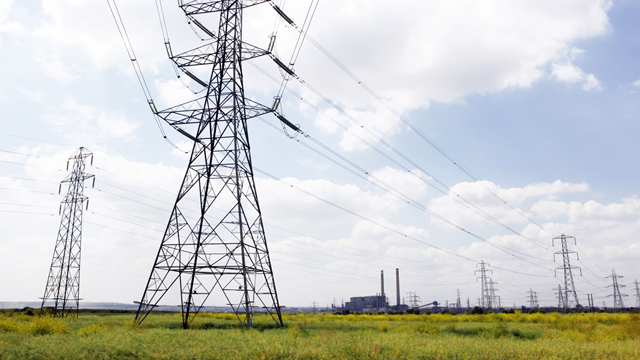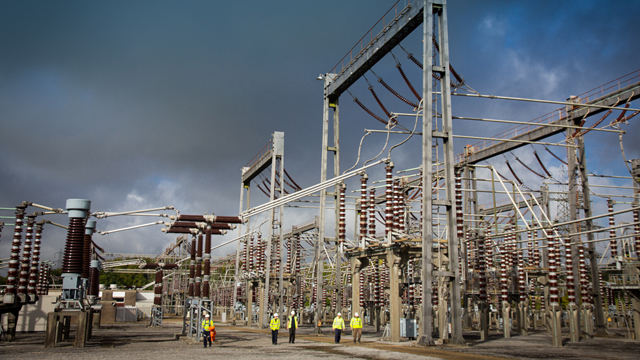
How are our Nationally Significant Infrastructure Projects approved (or rejected) in the UK?
We’re making significant investments to upgrade the electricity transmission network and support the UK government’s plans for the clean energy transition. Our infrastructure projects are helping to connect more clean, affordable energy to homes and businesses across England and Wales.
Alongside upgrades to the existing high-voltage electricity network, we’re planning additional network reinforcements to make sure that we can connect homes and businesses to new renewable and low carbon electricity generation sources.
But before we can start any work, there is a specific, multi-faceted process for approving – or rejecting – the plans for these types of projects.
What is a Nationally Significant Infrastructure Project?
Some of our network reinforcement proposals meet the criteria to be classified as Nationally Significant Infrastructure Projects (NSIP). Other examples of NSIPs include new airports, major roads, renewable energy projects and power stations.
These types of projects require a special type of planning permission, known as a Development Consent Order (DCO), and we’re required to submit a DCO application to the Planning Inspectorate (PINS).
DCO applications are examined by an expert independent inspector or panel of inspectors – known as the examining authority – who make a recommendation to Government on whether to approve or reject proposals. It’s the Government that ultimately makes the decision on the DCO.
How does the development consent order process work?
Initial planning
Before submitting a DCO application, our teams will spend a lot of time developing detailed plans for the new infrastructure we're proposing. We'll undertake technical work and environmental surveys and assessments, speak to landowners and other stakeholders, and seek feedback on our plans through consultation and engagement.

Public consultations and feedback
Optional non-statutory consultation
Before undertaking statutory consultation, we typically undertake an initial round of consultation on our plans. This consultation is designed to introduce our early proposals and gain feedback from the local community and stakeholders. It is called a ‘non-statutory’ consultation which is an optional stage of the DCO process.
We do this because local knowledge plays an important part in the development of our proposals. Seeking feedback from local communities, as soon as we have enough detail about a project, allows people to have an opportunity to influence it.
Statutory consultation
A statutory public consultation gives an opportunity for the local community and interested stakeholders to influence and shape our proposals. All feedback is carefully recorded and included in our DCO application, along with details of where it has led to changes in our designs.
Planning inspectorate review
After our application is submitted, the Planning Inspectorate must decide whether our application includes enough detail for them to be able to accept and examine it.
Once this is done, they'll intensively scrutinise our proposals by reviewing our application documents and all representations of support or objection received, and by holding public hearings. This is known as the project's examination period.
Anyone who is interested can register to take part in the examination and will have the opportunity to make either verbal or written representations about our plans.
Final approval for the proposed NSIP
When the examination has concluded, the Planning Inspectorate will write a report on their findings, including a recommendation regarding whether or not to grant a DCO for the project. For applications by National Grid this report will go to the Secretary of State for Energy Security and Net Zero, who has the final say on whether to grant or refuse development consent.
How long does the approval process take?
From DCO application to Secretary of State decision, the entire process takes approximately 18 months.
More about the NSIP approvals process
For more information about how Nationally Significant Infrastructure Projects are approved or rejected in the UK, you can visit the Government's planning inspectorate website.
Published: 1 Apr 2025
The information in this article is intended as a factual explainer and does not necessarily reflect National Grid's strategic direction or current business activities.



